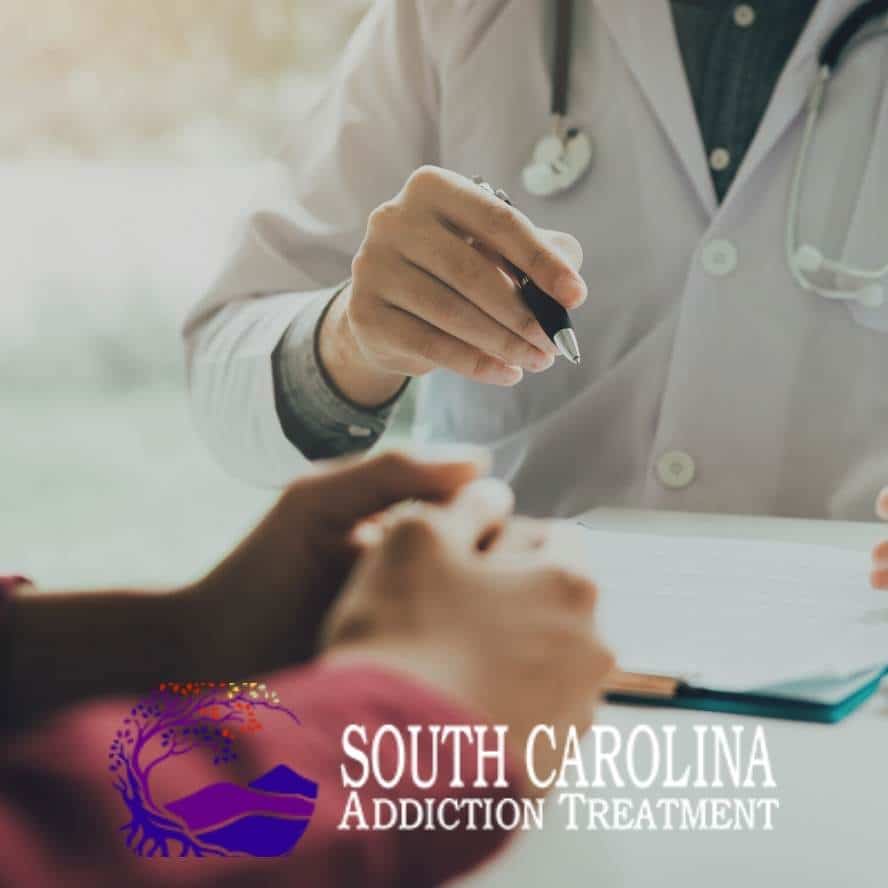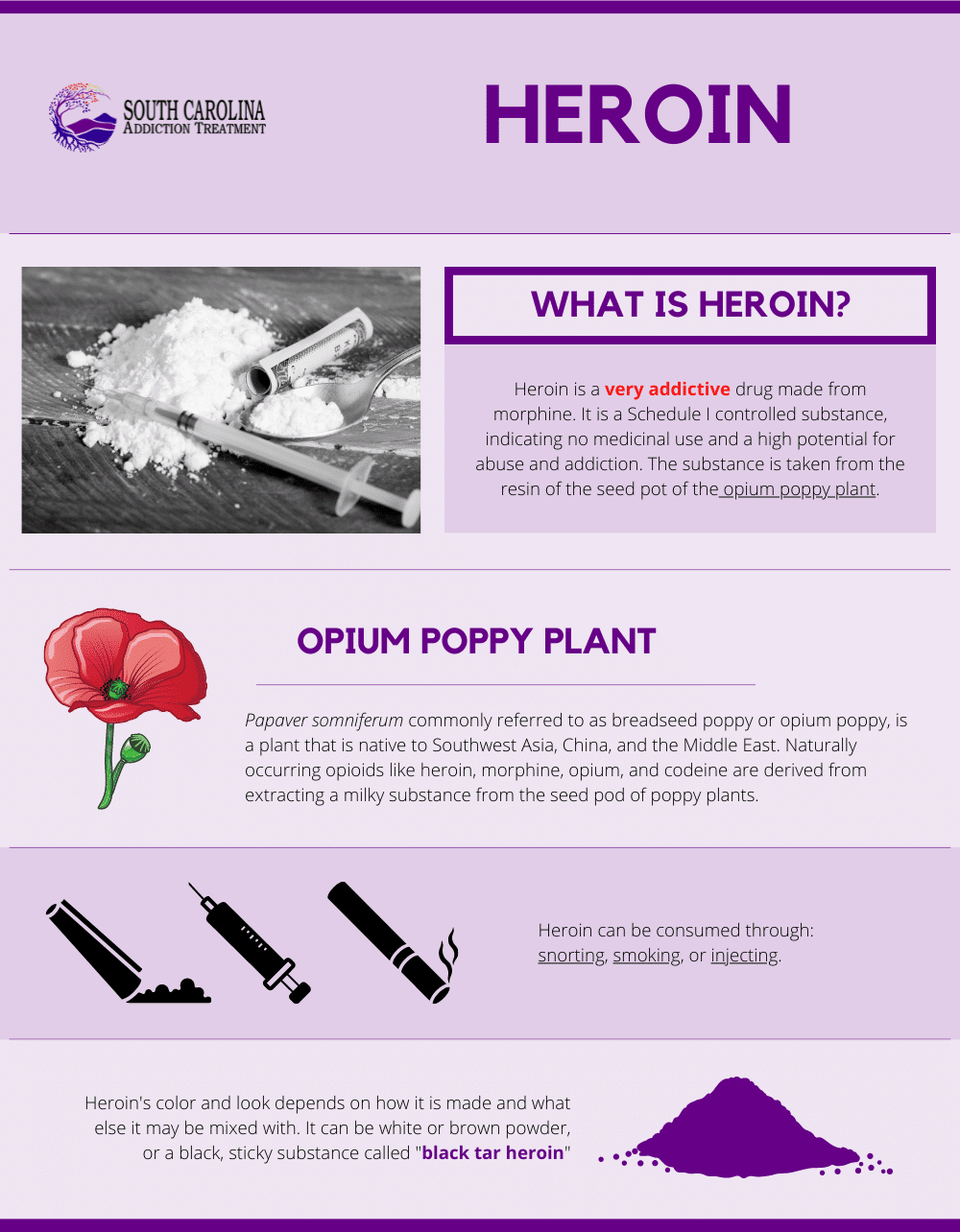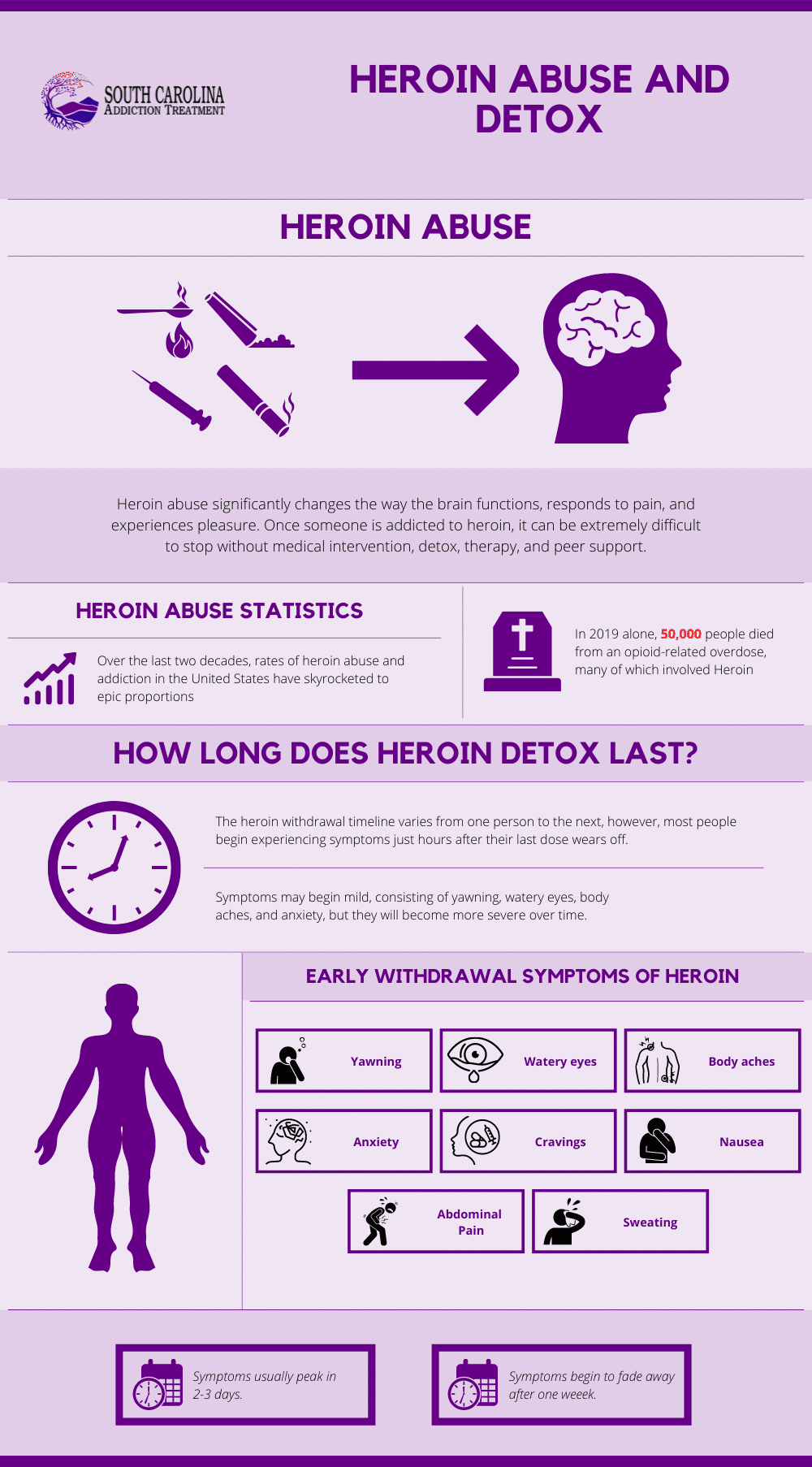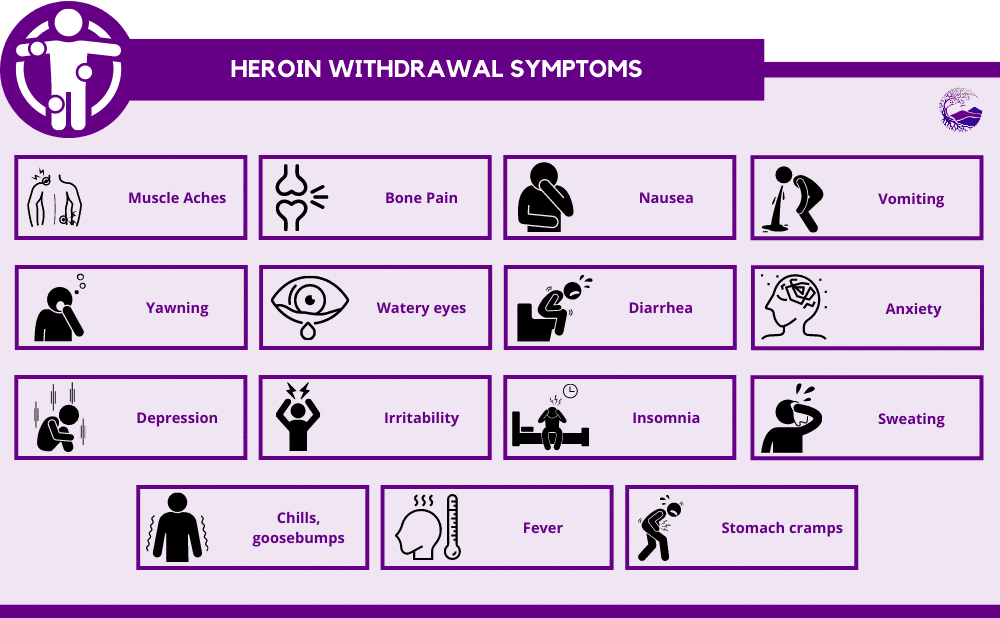How Does Heroin Detox Work?

Medically Verified: 2/1/24
Medical Reviewer
Chief Editor

All of the information on this page has been reviewed and verified by a certified addiction professional.
Over the last two decades, rates of heroin abuse and addiction in the United States have skyrocketed to epic proportions. In 2019 alone, 50,000 people died from an opioid-related overdose, many of which involved heroin.[1] And, combined with an economic impact of more than $50 billion each year, it’s easy to understand why the increase in heroin abuse is so concerning.[2]
Heroin abuse significantly changes the way the brain functions, responds to pain, and experiences pleasure. Once someone is addicted to heroin, it can be extremely difficult to stop without medical intervention, detox, therapy, and peer support. Heroin detox centers in South Carolina have on-site medical care and addiction professionals to help patients begin their journey to recovery.

If you or someone you know is struggling with heroin addiction, the first step is to ask for help. Once you’ve made the initial phone call to a South Carolina addiction treatment center, you can begin preparing for detox. However, if you’ve never been to detox before, you may be nervous and overwhelmed because you’re not sure what the future has to hold.
Here is what you can expect during heroin detox.
The Intake Process
When you first arrive at a heroin detox in South Carolina, an intake counselor will get you checked in and search your belongings to make sure you are only bringing items that are allowed into the detox facility.
After you have been admitted, you will meet with a physician to undergo your initial evaluation. A doctor will conduct a physical and ask you several questions, such as:
- What substances are you addicted to?
- How long have you been using heroin?
- What symptoms are you currently experiencing?
- Are you taking any medications?
- What is your medical history?
- What is your family’s medical history?
- Do you have any physical or mental health conditions?
- What are your goals in treatment?
This evaluation will help the clinical team become familiar with your needs and your situation so they can develop a custom treatment plan tailored for you.
If needed, you may also be asked to provide blood or urine samples for testing. Your doctor may also begin prescribing you medications to start the detox process.
Medical Stabilization
Most of the time, heroin withdrawal is not a life-threatening process. Still, some symptoms can become so severe that people can benefit from medical intervention.
For instance, if you struggle with diarrhea and vomiting, you could become dehydrated and need fluids. If you fall asleep and vomit, you could experience aspiration and need immediate help.
Heroin detox programs in South Carolina have medical staff on-site to provide supervision and care for these problems and more. Doctors, nurses, and staff will be ready to intervene at all times of the day and night in the event of a medical emergency.
In addition to providing supervision and medical intervention, doctors can also prescribe FDA-approved detox medications to help reduce the severity of your symptoms. The most commonly used medications to treat heroin withdrawal include:[3]
- Methadone
- Buprenorphine (Subutex)
- Suboxone (buprenorphine/naloxone)
Doctors can also prescribe sleep medications to help you beat insomnia, blood-pressure medications if your blood pressure gets too high, and over-the-counter medications to help with nausea and diarrhea.
This type of 24/7 medical care and supervision will be continued until the worst of your withdrawal symptoms have passed. Once you are deemed clinically stable and cleared to go by a doctor, you may be released from the detox facility.

Heroin Withdrawal Symptoms
The process of heroin detox itself is usually not life-threatening, however, the withdrawal symptoms produced can be difficult to deal with alone.
Symptoms of heroin withdrawal mimic those of the flu except they may be more intense and longer-lasting. The duration of heroin withdrawal and how intense the symptoms become depend on a host of different factors, including:
- Your age, weight, and metabolism
- Your overall health
- How long you have been using heroin
- How frequently you use heroin
- The dosage and potency of heroin your body is dependent on
- Whether or not you are also addicted to other substances
Symptoms of heroin withdrawal include:[4]

- Muscle aches
- Bone pain
- Nausea
- Vomiting
- Frequent yawning
- Watery eyes
- Diarrhea
- Anxiety
- Depression
- Irritability
- Insomnia
- Sweating
- Chills, goosebumps, or cold flashes
- Fever
- Stomach cramps
How Long Does Heroin Detox Last?
The heroin withdrawal timeline varies from one person to the next, however, most people begin experiencing symptoms just hours after their last dose wears off. Symptoms may begin mild, consisting of yawning, watery eyes, body aches, and anxiety, but they will become more severe over time.
Symptoms will usually peak in 2-3 days after a person’s last dose and begin to fade away after one week. During and after withdrawal, drug cravings can be so strong that it is difficult to avoid relapse.
The best way to prevent relapse during this time is to detox at a medical facility where clinical care is available. Close monitoring and therapeutic support will help you get through detox clean and sober.
Treatment Planning
When you begin feeling better, but before you are medically cleared for release, you will meet with a substance abuse counselor for treatment planning. The counselor will discuss your different treatment options with you and help you make an informed decision as to which type of rehab program is right for you.
They will connect you with an admissions coordinator to collect your insurance and start the transition process from detox to rehab. Remember, detox doesn’t cure or treat heroin addiction – it merely clears your body and mind of intoxicating substances so you can begin your recovery journey.
Start Your Heroin Detox Journey at South Carolina Addiction Treatment
South Carolina Addiction Treatment provides a medically sophisticated heroin detox program that helps ease clients through acute withdrawal, medically managing their comfort and symptoms in a proactive and compassionate manner.
Our skilled and experienced medical and therapeutic staff are trained to provide care and support for sufferers of substance use disorders as well as their families. This support includes education on the realities of addiction that de-stigmatize this overwhelmingly common disease.
Get started on your recovery by contacting one of our dedicated addiction specialists today.
References:

